Introduction to earth science -> geology
Geology
Geology is the study of the Earth, its history, and the processes that shape it. It is a broad field that encompasses the study of rocks, minerals, fossils, and the structure of the Earth's crust.
Key Concepts
- Rock Types: Geologists classify rocks into three main types: igneous, sedimentary, and metamorphic. Igneous rocks form from the cooling and solidification of molten rock, sedimentary rocks form from the accumulation and compression of sediment, and metamorphic rocks form from the alteration of existing rocks due to heat and pressure.
- Plate Tectonics: The Earth's lithosphere is divided into several large and small plates that float on the semi-fluid asthenosphere. The movement of these plates leads to various geological phenomena such as earthquakes, volcanic activity, and mountain formation.
- Fossils: Fossils are the remains or traces of ancient life forms preserved in rocks. They provide important information about the history of life on Earth and the environmental conditions that existed in the past.
- Geological Time Scale: Geologists use the geological time scale to divide Earth's history into eons, eras, periods, and epochs based on significant geological and biological events.
Study Tips
- Learn to Identify Rocks: Familiarize yourself with the characteristics of different rock types and learn how to identify them based on their appearance and properties.
- Understand Plate Tectonics: Study the movement of tectonic plates and the geological features associated with plate boundaries, such as earthquakes, volcanic arcs, and mountain ranges.
- Explore the Geological Time Scale: Memorize key events and periods in Earth's history to gain a better understanding of the long-term processes that have shaped the planet.
- Field Trips and Hands-On Activities: Visit geological sites, museums, and participate in hands-on activities to reinforce your understanding of geological concepts.
By mastering the fundamental concepts of geology and applying effective study strategies, you can develop a deeper appreciation for the Earth's dynamic processes and the fascinating history recorded in its rocks and fossils.
.◂Science Worksheets and Study Guides Sixth Grade. Introduction to earth science
Study Guide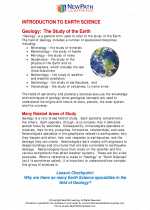 Introduction to earth science
Introduction to earth science  Activity Lesson
Activity Lesson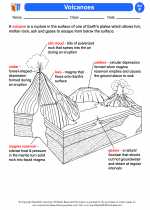 Volcanoes
Volcanoes  Worksheet/Answer key
Worksheet/Answer key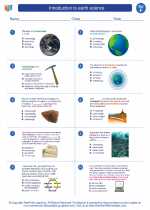 Introduction to earth science
Introduction to earth science  Worksheet/Answer key
Worksheet/Answer key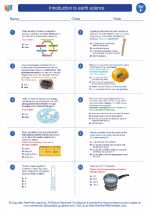 Introduction to earth science
Introduction to earth science  Worksheet/Answer key
Worksheet/Answer key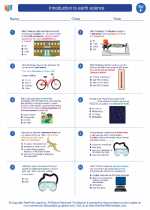 Introduction to earth science
Introduction to earth science  Vocabulary/Answer key
Vocabulary/Answer key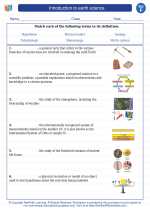 Introduction to earth science
Introduction to earth science  Vocabulary/Answer key
Vocabulary/Answer key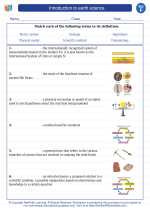 Introduction to earth science
Introduction to earth science 

 Activity Lesson
Activity Lesson
 Worksheet/Answer key
Worksheet/Answer key
 Worksheet/Answer key
Worksheet/Answer key
 Worksheet/Answer key
Worksheet/Answer key
 Vocabulary/Answer key
Vocabulary/Answer key
 Vocabulary/Answer key
Vocabulary/Answer key

The resources above cover the following skills:
EARTH AND SPACE SCIENCE